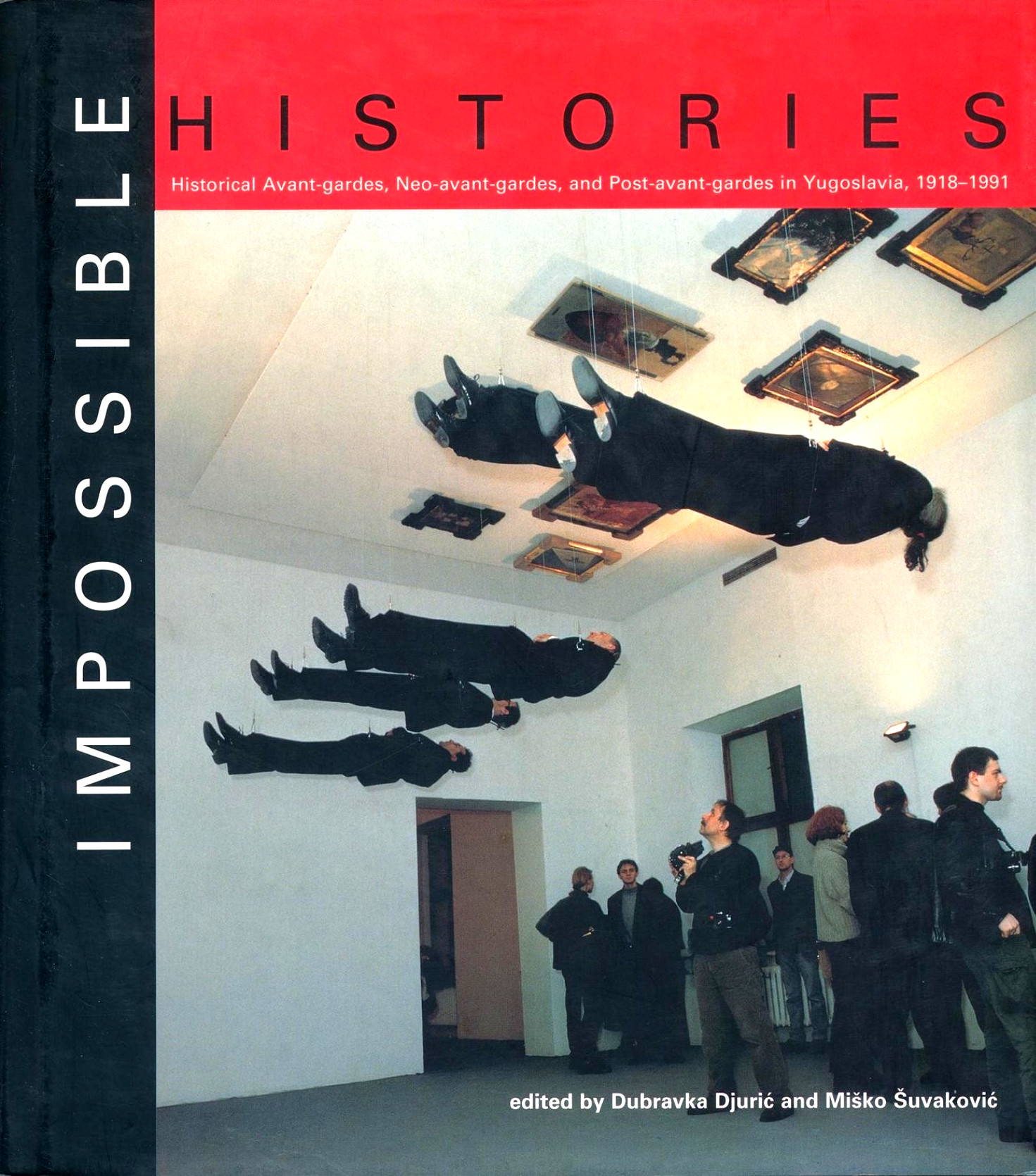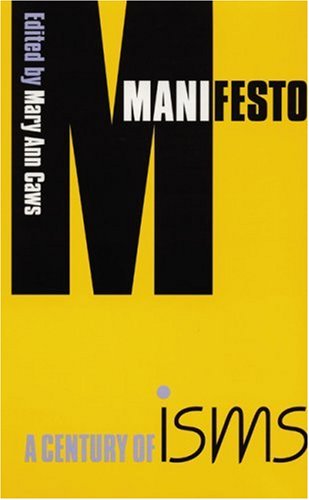Dubravka Djurić, Miško Šuvaković (eds.): Impossible Histories: Historical Avant-gardes, Neo-avant-gardes, and Post-avant-gardes in Yugoslavia, 1918-1991 (2003)
Filed under book | Tags: · architecture, art history, avant-garde, conceptual art, literature, manifesto, music history, neo-avant-garde, post-avant-garde, postmodern, retro-avant-garde, video art, yugoslavia

“Impossible Histories is the first critical survey of the extraordinary experiments in the arts that took place in the former Yugoslavia from the country’s founding in 1918 to its breakup in 1991. The combination of Austro-Hungarian, French, German, Italian, and Turkish influences gave Yugoslavia’s avant-gardes a distinct character unlike those of other Eastern and Central European avant-gardes. The book explores movements such as Belgrade surrealism, signalism, Yugo-Dada, and zenitism; the groups Alfa, Exat 51, Gorgona, OHO, and Scipion Nasice Sisters Theater; or the magazines Danas, Rdeči pilot, Tank, Vecnost, and Zvrk.
The pieces in this collection offer comparative and interpretive accounts of the avant-gardes in the former Yugoslavian countries of Croatia, Serbia, and Slovenia. The book is divided into four sections: Art and Politics; Literature; Visual Art and Architecture; and Art in Motion (covering theater, dance, music, film, and video). All of the contributors live in the region and many of them participated in the movements discussed. The book also reprints a selection of the most important manifestos generated by all phases of Yugoslav avant-garde activity.”
Publisher MIT Press, 2003
ISBN 0262042169, 9780262042161
xviii+605 pages
via agitprop
Reviews: Suzana Milevska (Springerin, 2004), Matthew S. Witkovsky (caa.reviews, 2004), Yevgeniy Fiks (Art Journal, 2004), Tyrus Miller (Modernism/modernity, 2005), Igor Marjanović (Design Issues, 2007).
PDF (22 MB)
Comment (0)Laboria Cuboniks: The Xenofeminist Manifesto: A Politics for Alienation (2018)
Filed under book | Tags: · accelerationism, alienation, automation, cyberfeminism, feminism, gender, manifesto, materialism, nature, neorationalism, politics, technology, theory, women, xenofeminism

“The real emancipatory potential of technology remains unrealised.
The Xenofeminist Manifesto calls for the scaling up of feminism. Contemporary feminism, it contends, is limited by its predominant investment in local and micropolitical action. What is needed is a feminism capable of systemic intervention. The Xenofeminist Manifesto propose that such a feminism must start from a new universal–one no longer coded as cis, straight, white, and male–with Xenofeminism as its theoretical and technological platform. Drawing on queer and transfeminist theory, as well as philosophical rationalism, against nature and biological essentialism, the feminist collective Laboria Cuboniks instead invest in alienation and the anti-natural, in seizing technology and in embracing the desire for an alien future.
If nature is unjust, change nature!”
Publisher Verso, London, September 2018
Creative Commons BY 4.0 International License
ISBN 9781788731577, 1788731573
95 pages
Commentary: Annie Goh (2018).
Comment (0)Mary Ann Caws (ed.): Manifesto: A Century of Isms (2001)
Filed under book | Tags: · art, art criticism, art history, avant-garde, bauhaus, cubism, dada, de stijl, expressionism, fauvism, futurism, history of literature, imagism, lettrism, literature, manifesto, modernism, surrealism, symbolism, vorticism

“An anthology featuring over 200 artistic and cultural manifestos from a wide range of countries. It includes texts ranging from Kurt Schwitters’ ‘Cow Manifesto’ to those written in the name of well-known movements – imagism, cubism, surrealism, symbolism, and projectivism – and less well-known ones – lettrism, acmeism, concretism, and rayonism.”
Publisher University of Nebraska Press, Lincoln, 2001
ISBN 0803264070, 9780803264076
xxxiv+713 pages
Reviews: Greil Marcus (Artforum, 2001), Publishers Weekly (2001), Gail McDonald (symploke, 2003), Cynthia Ellen Patton (College Literature, 2003).
PDF (14 MB, updated on 2017-11-21)
Comment (0)
